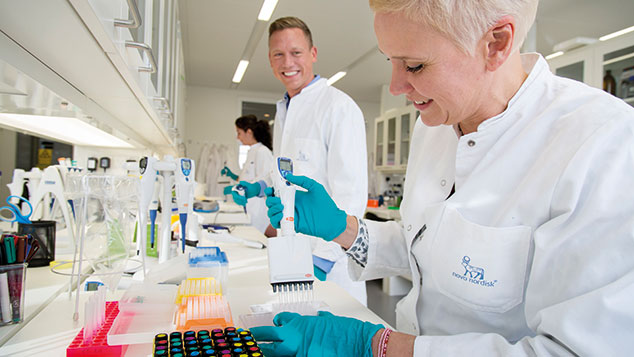
Thematic funds are the hot new thing in the world of exchange-traded funds (ETFs). The basic premise is to launch a cheap, index-tracking ETF based on a “secular trend” or “big idea”, preferably something accompanied by a wealth of positive news comment. As the battle hots up, provider ETF Securities has launched its “Future Perfect” range.
Each of the three ETFs in the range features a total expense ratio of 0.75%; an equal weighting in each stock within the portfolio at launch; and an index managed by German provider Solactive, although the issuer also works with specialist consultants behind the scenes.
First, there’s the ETFS Battery Value-Chain GO Ucits ETF (LSE: BATG), which, unsurprisingly, invests in energy storage. I had been wondering how long it would take for someone to launch a fund like this – top holdings include lithium producer Orocobre, Tesla (of course), Mitsubishi and electric-motor manufacturer Nidec.
Next is the ETFS Ecommerce Logistics GO Ucits ETF (LSE: ECOG), which invests in listed businesses with a strong logistics flavour. These include XPO, Kintetsu World Express and FedEx, as well as the usual suspects Amazon and Ocado.
But I’m slightly more curious about the ETFS Pharma Breakthrough GO Ucits ETF (LSE: BIGT). On paper, this sounds like a biotech fund, which is a brave move for anyone in the ETF industry. Most biotech funds are actively managed, with investment trusts such as the Biotech Growth Trust and BB Biotech fund already wildly popular.
To my knowledge, there is only one passive way into biotech at the moment and that’s through the Source Nasdaq Biotech ETF (LSE: SBIO), which has a low total expense ratio of 0.4%. This relatively new fund has already amassed over $500m in assets, demonstrating that the demand for a passive biotech fund certainly exists.
However, this ETFS pharma fund goes one step further. It targets “orphan drugs” – these are pharmaceutical products aimed at curing or treating rare diseases or disorders. These represent a specific segment of the pharma market, and benefit from lots of government incentives aimed at encouraging new entrants.
For instance, in the US orphan-drug developers have seven years of marketing exclusivity, with patents extending well beyond this term. There are also a lot of research and development benefits, with fees for drug applications waived and tax credits common.
The reasoning is simple – much of the mainstream pharma industry is far more focused on blockbuster drugs that can be used for countless tens of millions of patients. By contrast, orphan drugs have much smaller target markets and require considerable sector expertise. The end products can be hugely expensive (and there has been some pushback on this), but many orphan drugs indisputably save lives, and often the cost savings from new therapies – when compared with the cost of conventional remedies – can be vast.
Orphan drugs are now big business – a recent report from market researcher EvaluatePharma estimated that sales are expected almost to double between 2016 and 2022, to hit $209bn. The ETF Securities fund has some relatively well-known names in its top holdings, including Teva Pharma (a giant Israeli outfit) and Novo Nordisk (a Danish diabetes specialist), but there are also less well-known names, such as Bukwang and Spectrum. I think that, with a fair wind, this ETF could be a huge hit.
Short positions… Reits go way of bendy bananas
• Investors have been locked out of some of the world’s largest real-estate investment trusts (Reits) while fund supermarkets struggle to decide whether they fall foul of new EU rules, says Kate Beioley in the Financial Times. Essentially, brokers can’t agree whether certain Reits will be captured by a new requirement that certain types of fund in Europe produce a “key investor document” that sets out potential investment losses.
Because Reits can be set up as commercial property firms or investment vehicles, there’s confusion over whether they count as “packaged retail insurance-based investment products”, or Priips. For the time being, Interactive Investor and the Share Centre have stopped trading in certain Reits that haven’t produced a key investor document, though AJ Bell and Hargreaves Lansdown continue to trade in them.
• Carlos Hardenberg has resigned from Franklin Templeton Investment Management, leaving the running of the Templeton Emerging Markets Investment Trust to Chetan Sehgal, who oversees its global emerging-markets strategy, says CityWire. The move comes shortly after it was announced that the trust’s former manager Mark Mobius is retiring, after more than 30 years with the firm.
Activist watch
Activist investor Darwin Deacon has asked a court to block the $1.6bn merger between Xerox and Fujifilm, alleging that the deal was “the product of deceit and bad-faith conduct”, says the Financial Times.
In a complaint filed to the Supreme Court of New York, the billionaire investor said that the two companies had concealed from shareholders a “crown-jewel lock-up agreement” agreed 17 years ago, which would give the Japanese printing company control of Xerox’s intellectual property rights in Asia in the event of a sale of the US group. Xerox has said the allegations are “without merit”, and suggested that both Deacon and fellow shareholder and activist Carl Icahn knew about
the agreement.